#supreme-court-of-the-united-states
Text
It was a really, really good political news day today in the US (4/4/23)
For anyone who hasn't heard, not only did Trump get arrested, but also:
-We found out that the legal case against him in this prosecution (stormy daniels hush money case) is SIGNIFICANTLY stronger than people had speculated. Like, wow do they have receipts.
-In fact, the evidence was so entirely there that the new question on prime time news (well, at least on msnbc lol) is "Hey, why didn't the federal courts prosecute him for this already???)
-Trump FAILED UTTERLY in his attempts to rally mass protests and demands for "death and destruction" if he was arrested. There was no violence at the arrest at all, and as for Trump supporters? They failed to show up in any kind of numbers--reportedly only about a hundred people were protesting the arrest
-We (aka Judge Janet Protasiewicz) WON what is widely considered to be the most consequential election of 2023, a Wisconsin state supreme court election that handed control of the state supreme court to the left
-Because of that election win, it is now extremely likely that abortion will be legal in Wisconsin, and that Wisconsin won't be able to throw out electors in the 2024 presidential election
-ALSO bc of this, Wisconsin, the most gerrymandered state in the country, will probably get nonpartisan, accurate maps, which COULD FLIP THE HOUSE OF REPRESENTATIVES in 2024
-In Chicago, Brandon Johnson, union organizer and former teacher, won the election for mayor, in a decisive win progressives, esp for meaningful criminal justice reform and investment in mental health (whereas the other guy was campaigning on hiring hundreds of new cops and being super tough on crime)
#united states#us politics#wisconsin#supreme court#criminal justice reform#progressive politics#democrats#VOTING MATTERS#brandon johnson#janet protasiewicz#state supreme court#elections#gerrymandering#chicago#illinois#mayor#donald trump#trump indictment#trump arrest#alvin bragg#grand jury#manhattan#stormy daniels#good news#hope
25K notes
·
View notes
Text
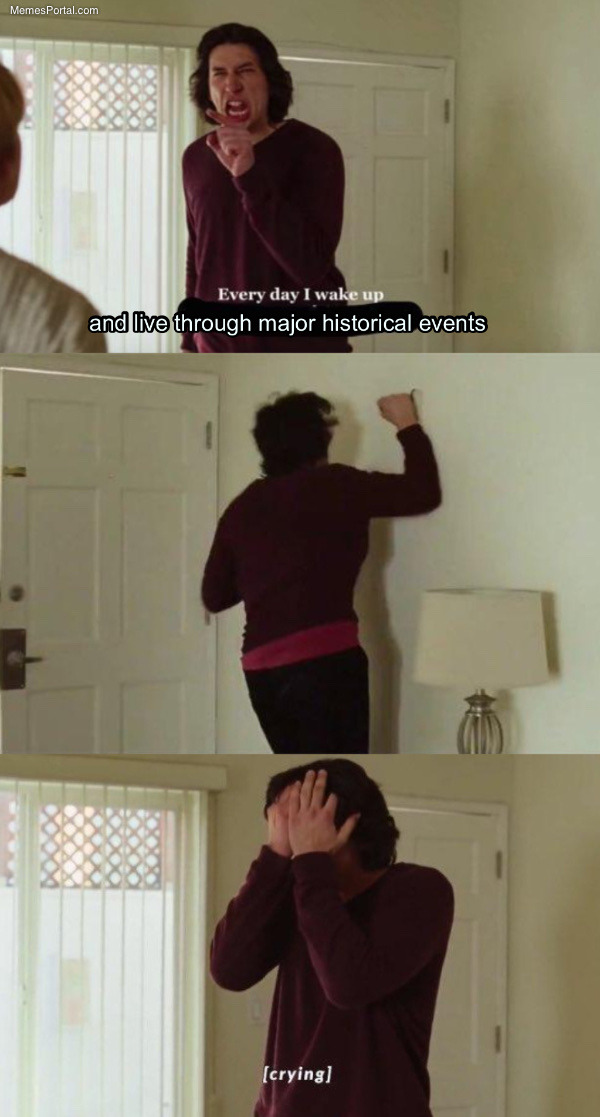
#fuck the supreme court#every day i wake up#ramblings#adam driver#adam driver memes#abortion is healthcare#reproductive rights#memes#united states#roe v wade#feminism#marriage story
41K notes
·
View notes
Text
With the landmark ruling — which falls in line with many of the SCOTUS justices' conservative stances — a precedent has now been set that in certain instances, U.S. businesses can legally deny their services to LGBTQ+ people under the First Amendment.
A final fuck you to the LGBTQ community at the end of Pride Month, courtesy of the Supreme Court.
#scotus#LGBTQ#politics#us politics#usa politics#lgbtqia#queer#news#supreme court of the united states
3K notes
·
View notes
Text
honestly jokes on the supreme court bcuz if they eliminated 20k off my debt I woulda paid the rest in full, but now i aint neeeever paying that shit off lmao!
3K notes
·
View notes
Text
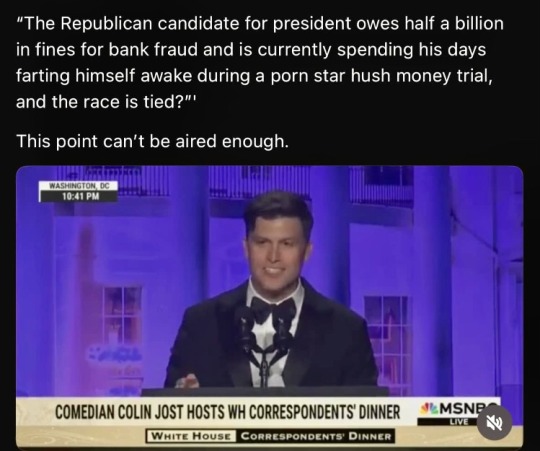
#FACTS#democracy#vote 2024#go vote#trump is a threat to democracy#please vote#us politics#fuck donald trump#vote blue#vote democrat#get out the vote#usa#united states supreme court#united states#save our democracy#we are all human#human rights#lgbtq community#lgbtq#my pillow mike lindell#trump dictatorship#trump derangement syndrome#donald trump#crooked donald#fuck maga#cnn#fox news#polls#university#columbia university
634 notes
·
View notes
Text

source 1
source 2
source 3
#destiel meme news#destiel meme#news#united states#us news#us politics#donald trump#supreme court#us supreme court#2024 presidential race#2024 elections#biden harris 2024#fuck trump#colorado supreme court
211 notes
·
View notes
Text

SCOTUS believes racism is a relic of the past.
397 notes
·
View notes
Photo
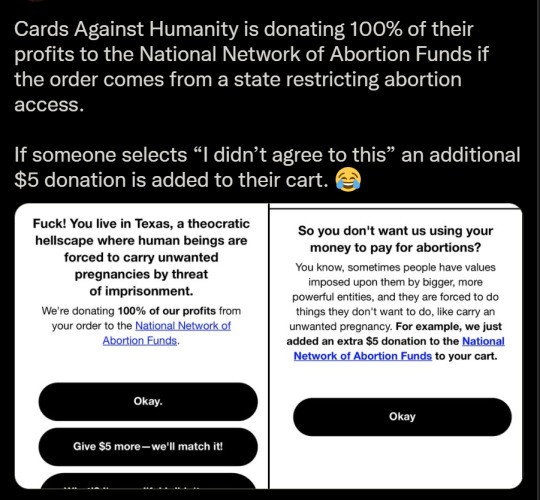
Cards Against Humanity
“Dear customers living in Alabama, Arizona, Arkansas, Florida, Georgia, Idaho, Indiana, Kentucky, Louisiana, Mississippi, Missouri, North Dakota, Ohio, Oklahoma, South Carolina, South Dakota, Tennessee, Texas, Utah, West Virginia, Wisconsin, and Wyoming,
Today, we are releasing some new packs. But while the packs were being printed, the Supreme Court overturned Roe v. Wade, and your state immediately turned itself into a dystopian forced-birth hellscape.
So we’re donating 100% of profits from orders to your nightmare-state to the National Network of Abortion Funds, plus $100,000 right now, to help the people most fucked over by the Republicans in your state government. We don’t need your money.
We also wanted to know what on earth the people in your state were thinking, so we asked them a few questions. You will unfortunately believe what we found.
For the love of God, don't forget to vote.
—Cards Against Humanity”
#cards against humanity#nsnv#national network of abortion funds#abortion#theocratic hellscape#twitter#source: twitter @ littlewhitty#roe v wade#abortion rights#card game#united states#supreme court#politics#us politics
1K notes
·
View notes
Text
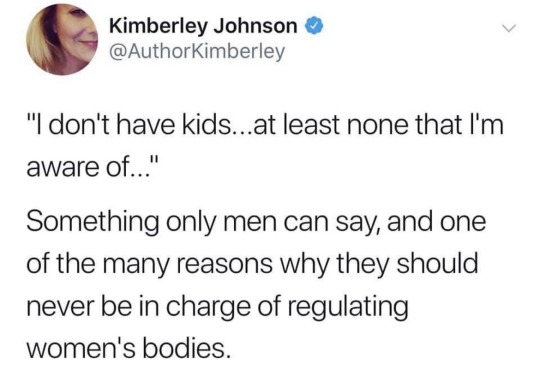
#abortion#pro choice#pro life#reality#children#roe v. wave#roe vs. wade#men#women#birthing#regulation#real shit#true shit#united states of america#USA#united states#war on women#the reason#reasons#supreme court#abortion laws#abortion ban#current reality#reality is#in real life#twitter#tweet#she said what she said#no but seriously#no but for real
187 notes
·
View notes
Link
Article Date: 7 June 2023
Climate litigation in the US could be entering a “game changing” new phase, experts believe, with a spate of lawsuits around the country set to advance after a recent supreme court decision, and with legal teams preparing for a trailblazing trial in a youth-led court case beginning next week.
The first constitutional climate lawsuit in the US goes to trial on Monday next week (12 June) in Helena, Montana, based on a legal challenge by 16 young plaintiffs, ranging in age from five to 22, against the state’s pro-fossil fuel policies.
A federal judge ruled last week that a federal constitutional climate lawsuit, also brought by youth, can go to trial.
More than two dozen US cities and states are suing big oil alleging the fossil fuel industry knew for decades about the dangers of burning coal, oil and gas, and actively hid that information from consumers and investors.
The supreme court cleared the way for these cases to advance with rulings in April and May that denied oil companies’ bids to move the venue of such lawsuits from state courts to federal courts.
Hoboken, New Jersey, last month added racketeering charges against oil majors to its 2020 climate lawsuit, becoming the first case to employ the approach in a state court and following a federal lawsuit filed by Puerto Rico last November.
the new forms of climate litigation are different, as they grapple not with particular projects’ emissions, but on responsibility for the climate crisis itself. Sokol, who dubbed these new suits “climate accountability litigation”, says though they will not alone lower emissions, they could help reshape climate plans.
In the US, this litigation has taken a variety of forms; perhaps the best known cases are based on constitutional rights and brought by youth.
One of those cases, Held v Montana, is based on the state’s constitutional guarantees to a clean and healthy environment, which were enshrined in the 1970s and which the plaintiffs say the state has violated by supporting fossil fuels. It will next week become the first-ever constitutional climate lawsuit to go to trial in the US.
Held v Montana followed the highly publicized 2015 Juliana v United States in which 21 young people from Oregon sued the US government for violating their constitutional rights to life, liberty and property by enacting policies that drove and exacerbated the climate crisis. The case, which like the Montana suit was filed by the non-profit law firm Our Children’s Trust, calls on federal officials to phase out fossil fuels.
Last week, a US district court ruled in favor of the youth plaintiffs, allowing that their claims can be decided at trial in open court.
Litigation based on state constitutional rights, also filed by Our Children’s Trust, is currently pending in four other states. One of those cases brought by Hawaii youth is set to go to trial, possibly as soon as this fall.
Another set of lawsuits in the US allege that the fossil fuel industry has for decades known about the dangers of burning coal, oil and gas, and actively hid that information from consumers and investors. Since 2017, seven states, 35 municipalities, the District of Columbia, and one industry trade association have sued major fossil fuel corporations and lobbying groups on these grounds.
In late April, lawyers for the city of Hoboken amended a 2020 complaint to allege that the defendants violated New Jersey’s racketeering laws by conspiring to sow doubt about climate change.
It marked the first-ever state-level lawsuit of its kind, following one last year in which 16 Puerto Rico cities brought federal racketeering charges, originally used to bring down criminal enterprises like the mafia, against big oil.
Unlike some previous cases, Hoboken’s amended lawsuit focuses not only on past misinformation, but also on contemporary greenwashing – something that could feature prominently in future cases.
A study last month examined litigation against fossil fuel majors and found that the filing of a new case or a court decision against a corporation took a slight toll on their finances. Novel developments – including a groundbreaking 2021 Netherlands court ruling ordering Shell to substantially slash its carbon emissions, and an unprecedented transnational claim filed in 2012 by a Peruvian farmer against a German energy company – yielded bigger blows.
Sankar, of Earthjustice, said he expects to see new forms of climate litigation in future years. “As the impact on states and localities increases, they are increasingly going to be looking for ways in which their state and local laws protect them,” he said.
(shinigami red links in this post go to The Guardian)
Article Date: 7 June 2023
Article Source: Dharna Noor for The Guardian
--
Thanks so much to @queerce for submitting!
#queerce#climate justice#greenwashing#climate litigation#lawsuits#hoboken#new jersey#puerto rico#united states#netherlands#peru#germany#earthjustice#racketeering#climate change#oregon#montana#constitutional law#supreme court#scotus#good news#hope
263 notes
·
View notes
Text
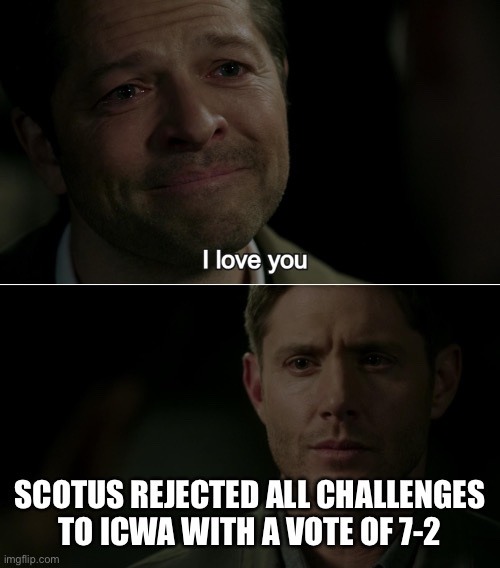
#icwa#supernatural#spn#Destiel#protect icwa#save icwa#indian child welfare act#Destiel meme#scotus#Supreme Court#united states supreme court
262 notes
·
View notes
Text
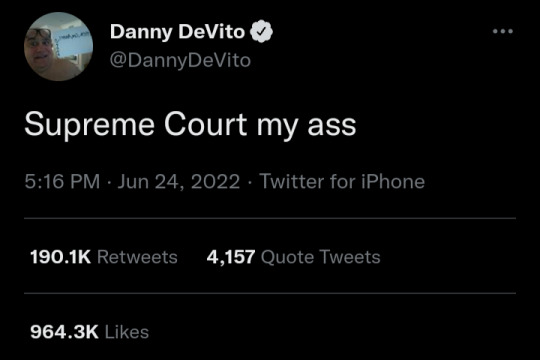
#king#danny devito#the only white man's opinion I want to hear on this#id in alt text#image id in alt text#roe versus wade#roe v wade#roe vs. wade#abortion#women's rights#feminism#feminist#Scotus#supreme court#Supreme court of the united states#healthcare#reproductive care#reproductive rights
2K notes
·
View notes
Text
On Thursday, Justice Neil Gorsuch released a 26-page opinion venting outrage about a legal dispute that does not exist, involving websites that do not exist. Yet this case, built on imaginary grounds, will have very real consequences for LGBTQ consumers, and for anti-discrimination laws more broadly. All of the Court’s Republican appointees joined Gorsuch’s opinion in 303 Creative v. Elenis.
That said, the fake dispute that Gorsuch imagines in his 303 Creative opinion involves a reasonably narrow legal question.
In the past, Christian right advocates have sought sweeping exemptions from state and federal civil rights laws, rooted in their expansive notion of “religious liberty.” Often, these lawsuits claimed that the Constitution’s safeguards for people of faith allow anyone who objects to LGBTQ people on religious grounds to defy any law prohibiting anti-LGBTQ discrimination.
303 Creative involves a much narrower dispute. The case centers on Lorie Smith, a website designer who wishes to expand her business into designing wedding websites — something she has never done before. She says she’s reluctant to do so, however, because she fears that if she designs such a website for an opposite-sex couple, Colorado’s anti-discrimination law will compel her to also design wedding websites for same-sex couples. And Smith objects to same-sex marriages.
As Gorsuch summarizes her claim, Smith “worries that, if she [starts designing wedding websites,] Colorado will force her to express views with which she disagrees.”
This is not a religious liberty claim, it is a free speech claim, rooted in well-established law, which says that the First Amendment forbids the government from compelling people to say something that they would rather not say. In ruling in Smith’s favor, the Court does not say that any religious conservative can defy any anti-discrimination law. It simply holds that someone like Smith, who publishes words for a living, may refuse to say something they don’t want to say.
The full implications of Gorsuch’s opinion are not entirely clear. In the past, religious conservatives have argued that artists and artisans of all kinds — including bakers, photographers, and floral arrangement designers — should also be allowed to discriminate under the First Amendment, because all artistic work necessarily entails some kind of expression. Gorsuch punts on this question, writing that “hypotheticals about photographers, stationers, and others, asking if they too provide expressive services covered by the First Amendment,” are not present in the 303 Creative case.
And it is worth emphasizing that the particular kind of work that Smith does, writing words on a publicly available website, fits more snugly within the First Amendment than a similar claim brought by a wedding cake designer or a florist.
Before this case was argued, I wrote that if Lorie Smith had been approached by a same-sex couple and refused to design a wedding website for them, and if she had then been sued for refusing to do so, then she would have a very strong First Amendment defense against such a suit. As the Supreme Court said in Rumsfeld v. Forum for Academic and Institutional Rights (2006), “freedom of speech prohibits the government from telling people what they must say.” And that includes the right of a web designer to refuse to write words on a website that they do not wish to write.
But none of these events have actually happened. And, for that reason, the Supreme Court should have dismissed the case.
THIS CASE SHOULD HAVE NEVER MADE IT THIS FAR
The frustrating thing about this case is that it involves an entirely fabricated legal dispute. Again, Lorie Smith has never actually made a wedding website for a paying customer. Nor has Colorado ever attempted to enforce its civil rights law against Ms. Smith. Indeed, in its brief to the Supreme Court, Colorado expressed doubt that its anti-discrimination law would even apply to Smith.
Yet Gorsuch’s majority opinion repeatedly paints Smith as a hapless victim, oppressed by wicked state officials who insist that she must proclaim a dogma that she denies. As he writes in the very first paragraph of his opinion, “Colorado does not just seek to ensure the sale of goods or services on equal terms. It seeks to use its law to compel an individual to create speech she does not believe.”
This claim is simply untrue. Colorado has not brought any enforcement action against Smith, or taken any other step to compel her to say anything at all — or to design any website that she does not want to design. Nor has anyone ever sued Smith for allegedly violating Colorado’s anti-discrimination law.
Indeed, in one particularly amusing turn, Smith alleged during an early stage of this litigation that she was approached by a man about doing some design work for his wedding to another man. Yet, after the New Republic’s Melissa Gira Grant contacted this man, she learned that he never reached out to Smith — and that he was married to a woman.
These facts matter because federal courts, including the Supreme Court, do not have jurisdiction to decide hypothetical cases. As a unanimous Supreme Court held in Texas v. United States (1998), “a claim is not ripe for adjudication if it rests upon ‘contingent future events that may not occur as anticipated, or indeed may not occur at all.’” So the Court should have told Smith to go away and come back when she had a real dispute with the state of Colorado.
303 Creative, moreover, is the second time Gorsuch has taken such liberties with the truth in order to rule in favor of a religious conservative. Almost exactly one year ago, Gorsuch handed down the Court’s decision in Kennedy v. Bremerton School District (2022), a case about a public school football coach who, after games, would walk to the center of the 50-yard line and ostentatiously kneel down and pray before students and spectators — often while surrounded by players, community members, and even members of the press.
Indeed, in her dissent in Bremerton, Justice Sonia Sotomayor included a photo of Coach Kennedy holding such a prayer session, as a throng of uniformed football players and other individuals kneel with him, and as people holding video cameras look on.
And yet, Gorsuch’s opinion in Bremerton claimed that Kennedy merely wanted to offer a “short, private, personal prayer,” and then Gorsuch ruled in favor of Kennedy based on this fabricated version of Kennedy’s actual conduct.
Needless to say, this is aberrant behavior by a Supreme Court Justice — and really by six Supreme Court justices, since all of the Court’s Republican appointees joined Gorsuch’s decisions in 303 Creative and Kennedy.
#us politics#news#vox#2023#us supreme court#SCOTUS#303 Creative v. Elenis#republicans#conservatives#justice neil gorsuch#religious liberty#republican homophobia#anti lgbtq discrimination#lgbtqia+ rights#lgbtqia+#Lorie Smith#Rumsfeld v. Forum for Academic and Institutional Rights#Texas v. United States#Kennedy v. Bremerton School District#justice sonia sotomayor
151 notes
·
View notes
Text
youtube
THE REPUBLICAN NOMINEE…
WHAT A FUCKING JOKE, BUT HE IS A DANGEROUS JOKE. SO; GO OUT AND VOTE!
🌊🌊💙
#democracy#vote 2024#us politics#go vote#please vote#trump is a threat to democracy#vote blue#fuck donald trump#vote democrat#get out the vote#let’s vote!#register to vote#republicans have no honor#conspiracy theory republicans#recall every republican#republican assholes#fuck republicans#maga morons#maga cult#fuck trasphobic legislation#transgender#lgbtqiia+#gay rights#woman’s rights#human rights#this is not normal#united states supreme court#united states#politics#usa
31 notes
·
View notes
Text
On This Day In History
June 26th, 2003: The Supreme Court of the United States rules in Lawrence v. Texas that gender-based anti-sodomy laws are unconstitutional, based on the same "right to privacy" that Roe v. Wade helped to establish. It is a 6-3 ruling.
June 26th, 2013: The Supreme Court of the Unites States rules in United States v. Windsor that Section 3 of the Defense of Marriage Act (DOMA) that denied federal recognition of same-sex marriages was unconstitutional, based on the Due Process Clause of the Fifth Amendment. It is a 5-4 ruling.
June 26th, 2015: The Supreme Court of the United States rules in Obergefell v. Hodges that the fundamental right to legally recognized marriages must be extended to same-sex couples, based on the Due Process Clause of the Fifth Amendment and the Equal Protection Clause of the Fourteenth Amendment. It is a 5-4 ruling.
#history#gay history#queer history#politics#supreme court#Lawrence v. Texas#sodomy#United States v. Windsor#gay marriage#gay rights#Obergefell v. Hodges#civil partnerships
1K notes
·
View notes
Text
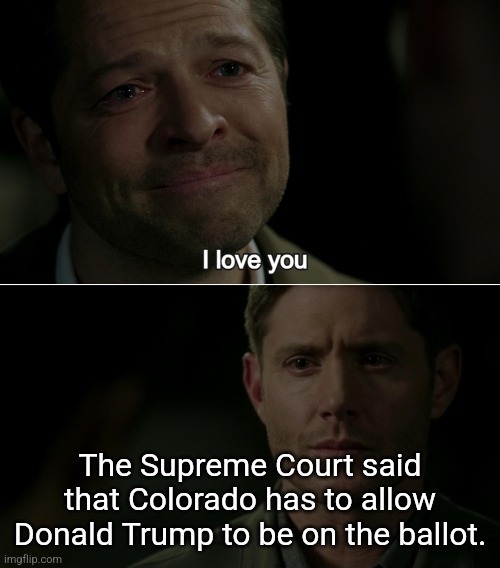
source 1
source 2
source 3
#destiel meme news#destiel meme#news#united states#us news#us politics#donald trump#fuck trump#nightmare country#what's the immigration policy like in new zealand#sorry about the lack of news posts lately#i've been playing bg3#colorado supreme court#us supreme court#supreme court#colorado ballot#anti trump#so this is how liberty dies
102 notes
·
View notes